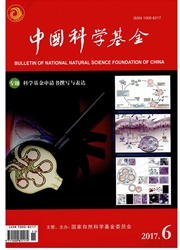

 中文摘要:
中文摘要:
中国在供给侧改革的新时期,既要保障农业产业的快速发展,更要注重 农业低碳经济效率的提高.与既有文献将碳排放作为“非合意产出”不同的是,本 文基于“碳投入”视角,运用空间计量经济方法,探讨中国七大农区低碳经济效率的 关联效应及农业产业集聚的影响.研究发现:尽管在低碳经济政策的作用下,农业 低碳经济效率均有不同程度提高,但从整体和区域两个角度来观察依旧不尽人意,农业低碳经济效率差距存在明显扩大的趋势,特别是地区间差距仍在不断拉大,区 域间不均衡发展已成为常态;与此同时,农业低碳经济效率在空间上亦有明显的溢 出效应.究其原因,农业产业集聚、区域经济发展水平、农村基础教育、农业产业结 构、城镇化及工业化之间的综合作用是造成上述结果的重要因素.
 英文摘要:
英文摘要:
It is not only necessary to guarantee the rapid development of agricultural industries but also to focus on the improvement of agricultural low-carbon economy as China during the new period of supply-side structural reform. Unlike the existed literatures regarding carbon emissions as “an undesirable output”,this paper, from the perspective of“carbon input”,aims to explore the association effect of low-carbon economy efficiency among the whole nation and seven agricultural regions and to analyze the crucial factors influencing low-carbon economy efficiency with the spatial econometric model. Results show that, though agricultural low-carbon economy efficiency has increased to various extent under the influence of the low carbon economy policy, the agricultural low-carbon economy efficiency from the overall and regional perspective is still unsatisfactory, the gap among regions has still been expanding, which indicates that the uneven development of regional agricultural low-carbon economy efficiency has become the normal. Besides, the efficiency of agricultural low-carbon economy has obvious spatial spillover effects. The regional differ-ence in agricultural low-carbon economic efficiency results from the synthetic effects of factors including agricultural industry agglomeration, regional economic development level, basic education in rural areas, agricultural industry structure, urbanization and industrialization, etc.
 同期刊论文项目
同期刊论文项目
 同项目期刊论文
同项目期刊论文
 期刊信息
期刊信息
